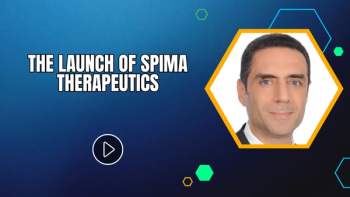
Funding was led by New Enterprise Associates, with participation from Foresite Capital and multiple other investors.


Funding was led by New Enterprise Associates, with participation from Foresite Capital and multiple other investors.

The importance of a strategic approach and proper due diligence in unlocking the full potential of these arrangements.

CEO Richard Francis reflects on Teva’s return to growth during his tenure, and what’s next for the drugmaker in its quest to recapture the heights of old.

Q4 earnings for companies such as Johnson & Johnson, Teva, and Roche highlight the impact of significant innovations brought to market last year.

The Phase III trial builds on findings from prior findings that indicated Anktiva can restore T-cell function and improve overall survival in patients with advanced of metastatic non-small cell lung cancer who are PD-1 checkpoint inhibitor resistant.

A surge in biotech startup out-licensing deals from the country are paving the way for increased IPO and M&A activities.

Under terms of the deal, AbbVie will provide Neomorph with an upfront payment and the potential to earn up to $1.64 billion in milestone payments.

Ash Shehata from KPMG discusses how artificial technology has a lot to prove, although investors still see a lot of potential in it.

The trial, developed in collaboration with Novotech, will specifically target dietary and alcohol-induced overindulgence.

As investors react to an ever-changing political climate, Ash Shehata from KPMG explains what factors they're paying attention to.

Ash Shehata from KPMG discusses how investors are feeling about the pharma and life sciences industry heading into 2025.

New partnerships aim to expand Teva’s biosimilar portfolio and enhance access to high-cost biologics across key markets.

Organizations including Gilead, Eli Lilly, and AbbVie announced a number of deals addressing inflammatory diseases, multiple myeloma, and other disease areas.

Under terms of the deal, GSK will also acquire IDRX-42, a tyrosine kinase inhibitor designed to treat both primary and secondary KIT mutations in patients with gastrointestinal stromal tumors.

Acquisition includes Caplyta, a once-daily oral therapy approved for schizophrenia and bipolar depression.

Under terms of the deal, Johnson & Johnson will gain an exclusive license to the STAT6 program, with Kaken maintaining commercialization rights in Japan.

PCV21 is the first pneumococcal conjugate vaccine candidate with more than 20 serotypes to enter a Phase III clinical trial in infants and toddlers.

Collaboration aims to enhance PSMA-B ligand, a novel theranostic molecule in development for the treatment of prostate cancer.

Because the AI space is changing rapidly, it’s essential that companies are budgeting correctly and using their investments strategically.

Mohamed Haitham Ayad, CEO, co-founder, SPIMA Therapeutics, discusses the company’s launch and how multiple institutions have supported its pipeline.

Licensing deals are expected to enhance the oncology, neuroscience, and antibody drug conjugate pipelines of the three manufacturers.

Under terms of the deal, Roche will gain access to Poseida’s pipeline, including P-BCMA-ALLO1, an allogeneic CAR T-cell therapy for multiple myeloma, and P-CD19CD20-ALLO1, a dual CAR T-cell therapy in early trials for B-cell malignancies and autoimmune diseases.

Agreement grants Sarepta exclusive rights to several clinical-stage programs for muscular dystrophy, myotonic dystrophy type 1, and more.

Under terms of the collaboration, Merck will lead the development, manufacturing, and commercialization of LM-299, an investigational bispecific antibody.

As part of the acquisition, BioNTech will obtain the rights to BNT327/PM8002, a bispecific antibody that targets PD-L1-low and -negative tumors that often resist checkpoint inhibitors.